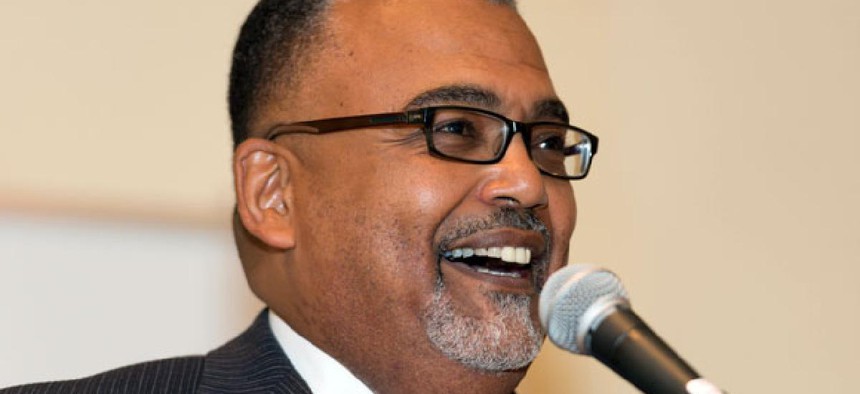
Mark Gaston Pearce, chair of the National Labor Relations Board Flickr user AAUP
Obama Names Three to Labor Relations Board Amid Court Fight
Previous recess appointments face a court challenge.
In the latest move in an ongoing dispute with Republicans in Congress, President Obama on Tuesday nominated three people for the National Labor Relations Board, including current chairman Mark Gaston Pearce, whose term ends in August.
Obama also named attorneys Harry I. Johnson III and Philip Miscimarra. “By enforcing workplace protections, upholding the rights of workers and providing a stable workplace environment for businesses, the NLRB plays a vital role in our efforts to grow the economy and strengthen the middle class,” Obama said in a statement. “With these nominations, there will be five nominees to the NLRB, both Republicans and Democrats, awaiting Senate confirmation. I urge the Senate to confirm them swiftly so that this bipartisan board can continue its important work on behalf of the American people.”
Obama’s inclusion of NLRB nominees as recess appointments in January 2012 became the subject of a continuing court challenge, and Republicans for years have sought to block his nominees to the bipartisan board due to objections to what they see as its pro-union agenda.
Pearce, before joining the board in March 2010, was a founding partner of Creighton, Pearce, Johnsen & Giroux.
Johnson is currently a partner with Arent Fox LLP, having previously been a partner at Jones Day.
Miscimarra is a partner in the Labor and Employment Group of Morgan Lewis & Bockius LLP. Since 1997, he has been a senior fellow at the University of Pennsylvania's Wharton Business School.
Sen. Tom Harkin, D-Iowa, chairman of the Senate Health, Education, Labor and Pensions Committee, praised the nominations, saying, “It is of paramount importance -- for workers, for businesses, and the economy -- to have a fully-functioning NLRB to adjudicate disputes in a timely fashion.”
Committee ranking member Sen. Lamar Alexander, R-Tenn., was more critical. “As tradition requires, the president has properly nominated two Republicans to serve on the National Labor Relations Board,” Alexander said. “It is now the Senate’s role to exercise advice and consent on the nominees. As the Senate considers the nominees, the two individuals who were unconstitutionally appointed should leave, because the decisions in which they continue to participate are invalid.”







